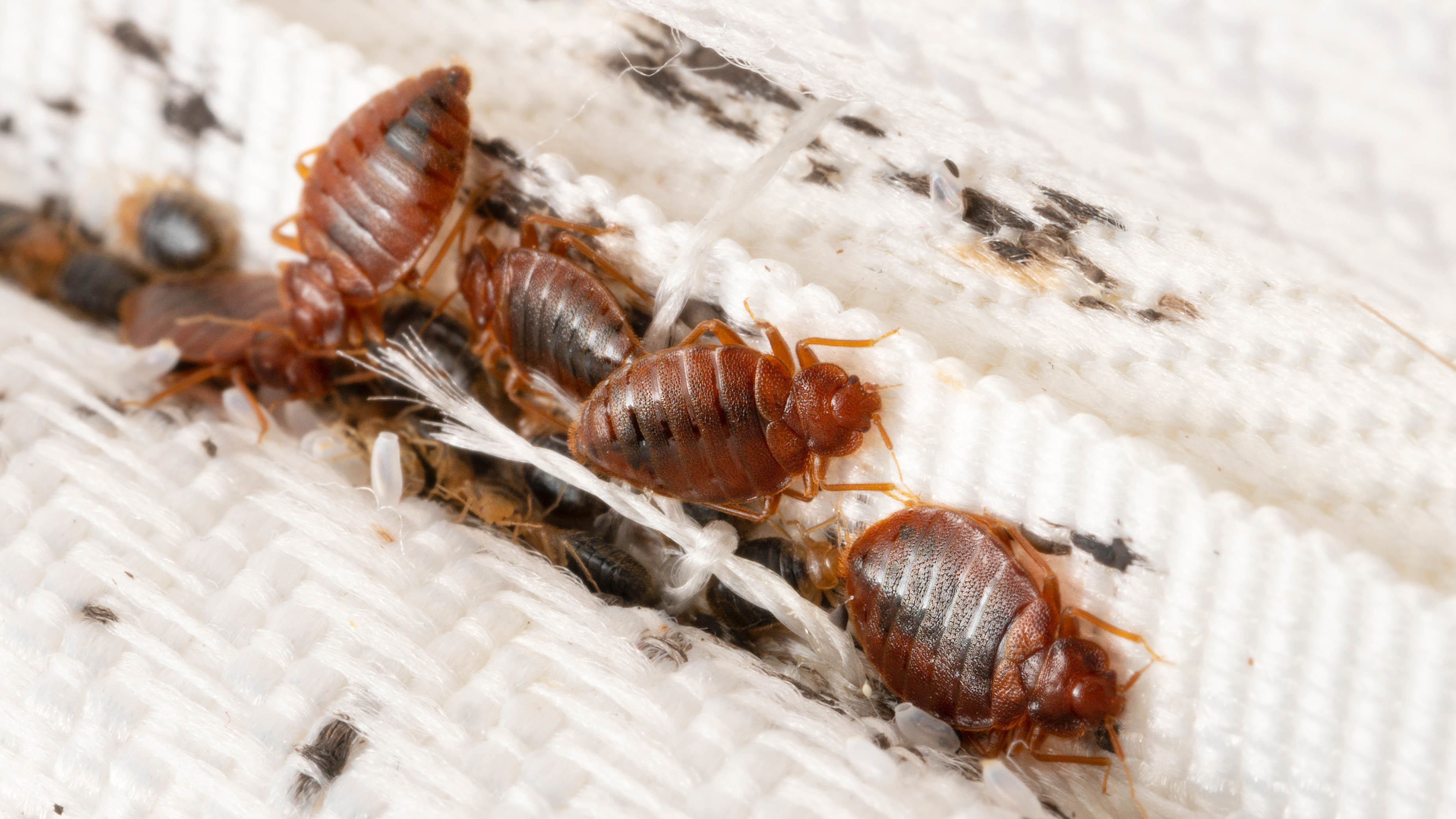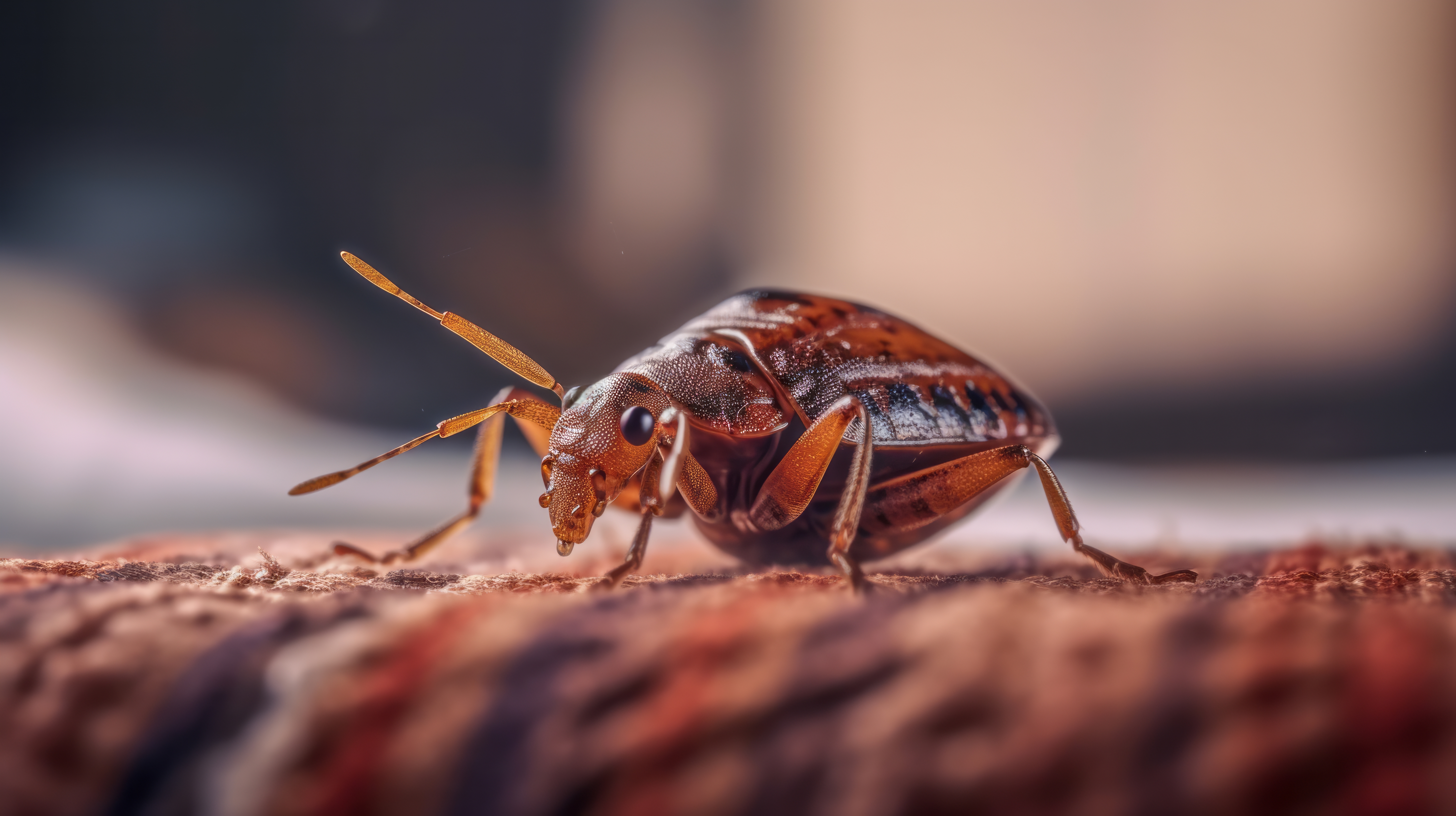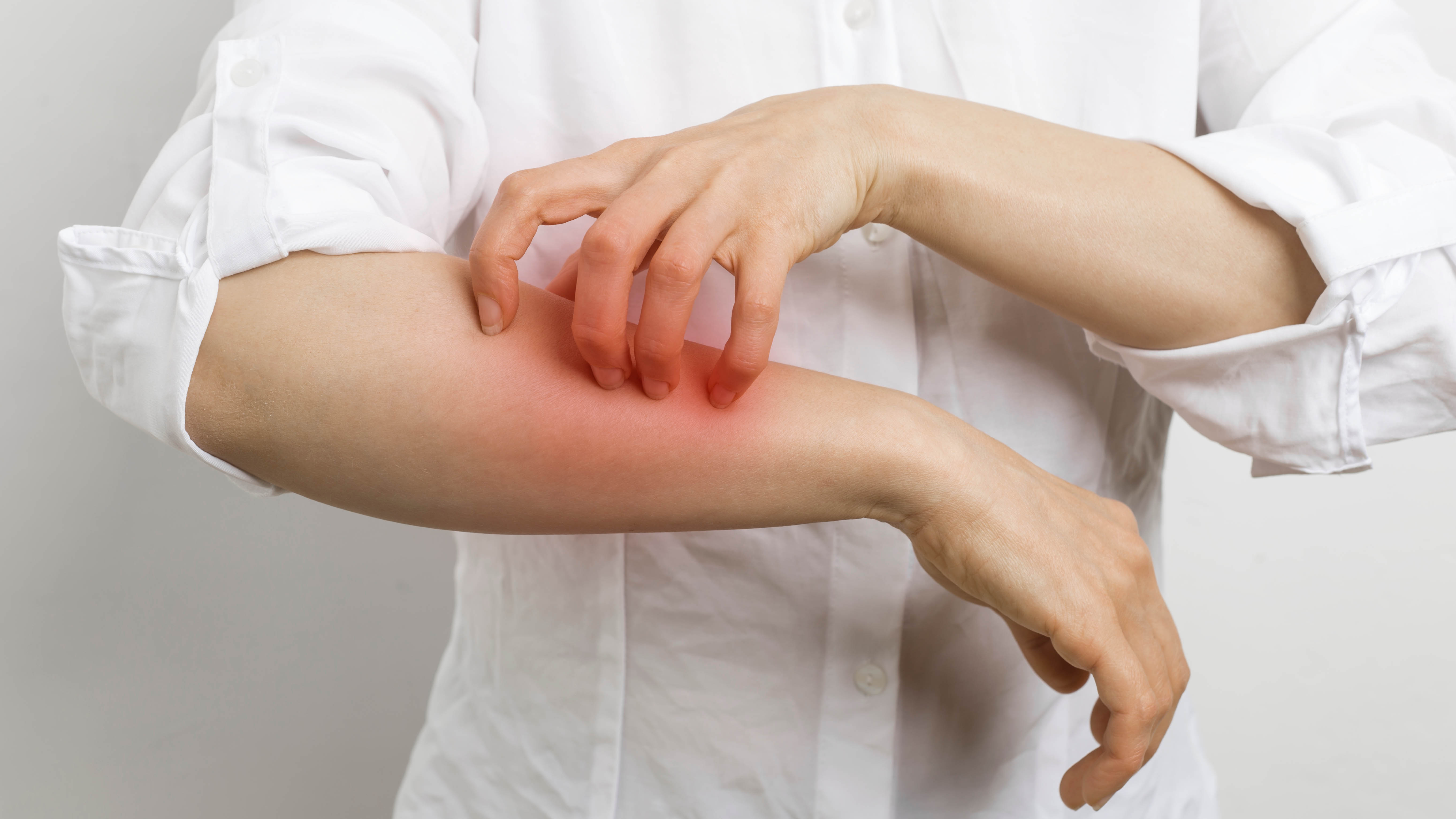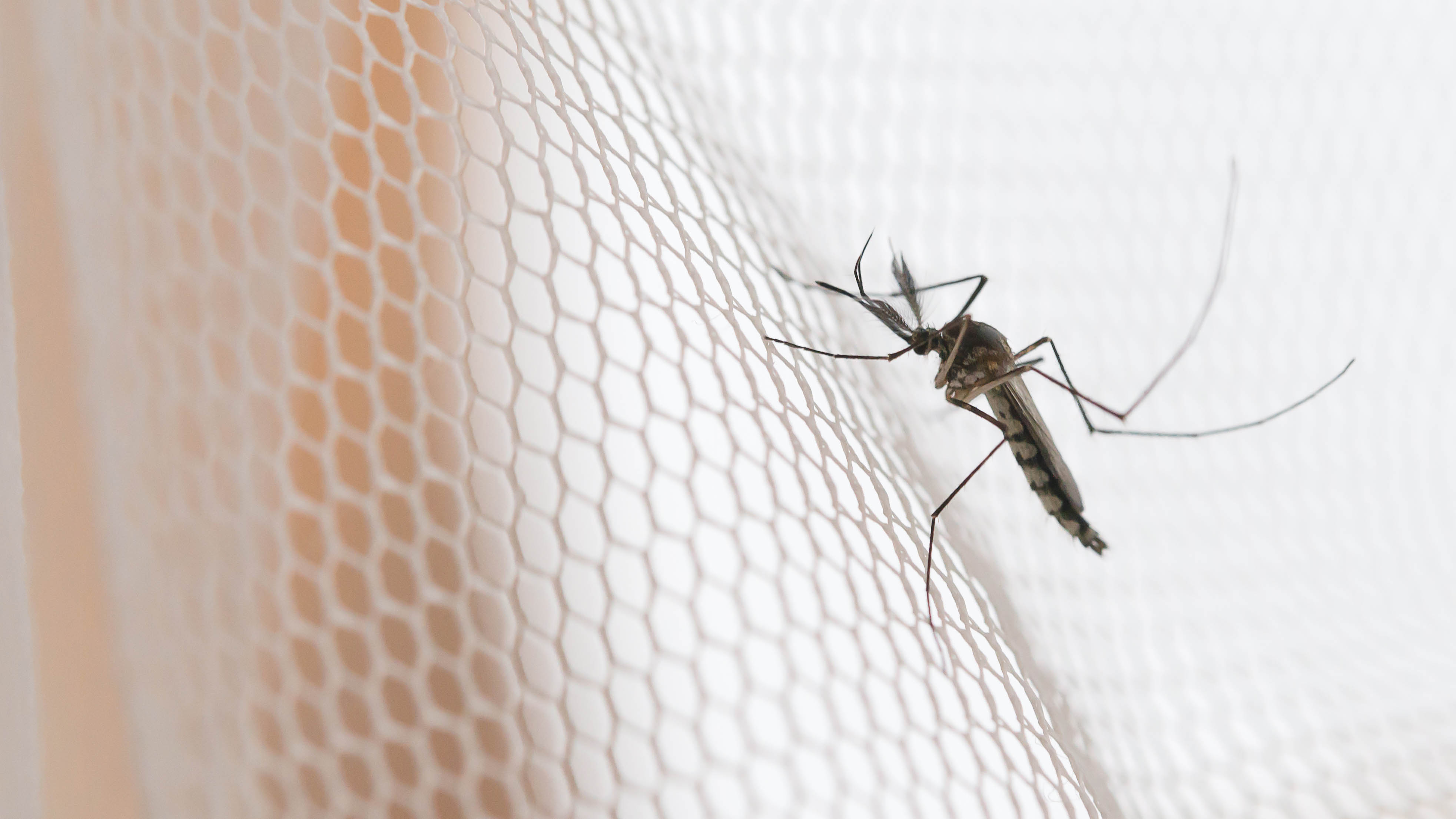5 pests that bite you in your sleep
These 5 pests will bite you in your sleep, given the chance

Pests are both annoying and frustrating to have around the home. Often hard to spot, and tricky to remove, they can make things uncomfortable to say the least. For instance, it’s never nice to hear scuttling in the walls as mice move around, or to spot a roach running for the hills when you flick the lights on. But, for some, the worst kinds of pests are those that bite you in the night.
Certain pests regard us as a food source, and wait until we rest to reveal themselves. They’re telltale by the bite marks they leave behind on your skin, and often go unspotted otherwise. It’s important that you address such a problem as soon as possible, because depending on the pest, biting can transmit disease and cause skin irritations, leading to infections. It’s not a pleasant thought as you sleep either. If you’re worried something is making a meal of you at night, here we list 5 pests that bite you in your sleep, as well as what to do if you suspect them.
1. Bed bugs

If you wake up covered with bite marks, bed bugs are usually the first suspicion — one of the 7 telltale signs of bed bugs in your home. These tiny insects will hide close to where you sleep (often around the bed and mattress for this reason), and then emerge to feed on you while you rest. They will generally bite wherever skin is exposed, leaving zig zag or lined patterns of inflamed pimples behind. While they won’t transmit disease, these bite marks can sometimes be itchy or blister, so you will want to deal with such pests. Add to that, they spread very easily via textiles and become all the more difficult to remove if given time to breed and infest.
Removing bed bugs is no easy task — often requiring repeated applications and taking months to fully eradicate. But, they must be dealt with. There are different methods available depending on whether you want to use chemicals or not. For a full breakdown, see how to get rid of bed bugs. But, some tips to get you started include vacuuming up immediate bed bugs from the mattress using the best vacuum cleaner, sealing up and throwing away the dust bin contents once you’re finished. Then washing the bedding on a high temperature to kill those that remain. You can also use a steam cleaner to kill bed bugs if needed too. A mattress cover may be necessary to contain remaining bugs, such as the Utopia Bedding Premium Zippered Mattress Encasement ($15, Amazon).
And here are 7 ways to prevent bed bugs from infesting your home.
2. Fleas

Fleas are well-known for feeding on our pets — causing them to itch and scratch constantly. But, they’re more than happy to feed on the blood of humans, too. So if you often let pets sleep or climb on the bed, and you've suspect they're carrying fleas, take care. These pests can easily jump from A to B here. In fact, fleas can live in upholstered furniture as well as carpets, so a home can quickly become infested if these pests aren’t addressed.
Flea bites tend to appear on the lower-half of our bodies, particularly on the legs, ankles and feet. Each flea will usually bite three times in a single meal, although it can be more or less depending on whether it’s interrupted. Bites can be clustered or sporadic, but they’re often very itchy and uncomfortable. While mostly harmless, these bites can spread fatal diseases such as flea-borne typhus, cat scratch disease and bubonic plague. Reactions are possible if you’re allergic too, so you must remove these pests.
Get instant access to breaking news, the hottest reviews, great deals and helpful tips.
Check out how to get rid of fleas for detailed guidance. You will need to address the source, which is likely your pets, as well as remove the fleas from the home, which involves vacuuming, steam cleaning and washing your bedding on a high wash — similar treatments to that of bed bugs.
3. Scabies

This is a particularly gross one, but it needs to be covered. Scabies actually refers to an infestation of the skin caused by itch mites, or sarcoptes scabiei. These pests burrow into the top layer of your skin to lay eggs, causing intense itching and discomfort. They’re often spread via direct contact of the skin, but can also be passed on from shared bedding, particularly if the host has crusted scabies which is more severe and life threatening.
Bites of this kind can look like a rash or eczema, with tiny bumps lined up under the skin. As mentioned earlier, itching will follow. According to the World Health Organization, “Scabies can lead to skin sores and serious complications like septicaemia (a bloodstream infection), heart disease and kidney problems.” So if you suspect scabies, you must take immediate action.
See a doctor as soon as possible and apply the necessary topical creams or oral medications to deal with the infestation. Avoid physical contact with others during this time. The bedding should be washed and dried on the highest temperature allowed by your washing machine and clothes dryer. You should also vacuum the room and seal any non-washable items in plastic for at least a week.
4. Mosquitoes

People forget that mosquitoes too can bite you in the night. In fact, it’s all too common to wake up with itchy pimples of this kind — particularly when you consider how active these pests are from dusk. Only female mosquitoes feed on human blood — they need this source of protein to help reproduce. They will bite multiple times on any areas of exposed skin until full; considering we're in bed at the time, this tends to be the arms, ankles, necks and faces.
The result is usually itchy and inflamed skin, which requires a few days to recover. But, these pests can also transmit fatal diseases, such as malaria and dengue, so try to protect yourself from mosquito bites as best you can.
There are all kinds of ways to get rid of mosquitoes, but we’ve also specifically found 7 ways to prevent mosquito bites at night. The best advice is to ensure you’ve got effective fly screens in place over your doors and windows, as well as that all-important mosquito net, such as this Mosquito Net Bed Canopy for Girls ($14, Amazon). Fans can also help distort a mosquito's flying pattern.
5. Lice

Lice can easily disturb a peaceful night’s sleep. These parasitic insects feed on human blood, but the bite locations will vary depending on the variety. For instance, body lice cling to textiles such as bedding and articles of clothing, often laying their eggs in the seams. They generally bite day or night around the seams of your clothes, such as the shoulders, neck and waistline, leaving discoloured bite marks and rashes behind if you have an allergic reaction.
Body lice can also transmit disease, such as typhus, relapsing fever and trench fever, and sores and infections can be a consequence too. Whereas head lice will stick to your scalp, taking shelter among the follicles. In either case, an infestation can lead to severe itching and should be dealt with asap.
To deal with body lice, simply wash and dry any bedding and clothing you believe to be infected on as high a temperature as the item allows — it needs to reach at least 130°F to kill the lice. Maintain a hygienic schedule, washing both yourself and your clothing regularly to eradicate these pests. Medications can also be prescribed to kill the lice. Body lice can be found worldwide, but they tend to occur in crowded regions with less access to clean clothes and water for washing.
If you’re dealing with head lice, kits are widely available to treat these infestations at home, such as this Lice Treatment Kit by Clinics ($29, Amazon). Remember to wash the bedding once again as well.
More from Tom's Guide

Katie Mortram used to be a Homes Editor for Tom's Guide, where she oversaw everything from kitchen appliances to gardening tools, as well as smart home tech. Specializing in providing expert advice for cleaning and home manintenance, she now works as Household Advice Editor for Good Housekeeping.
 Club Benefits
Club Benefits





